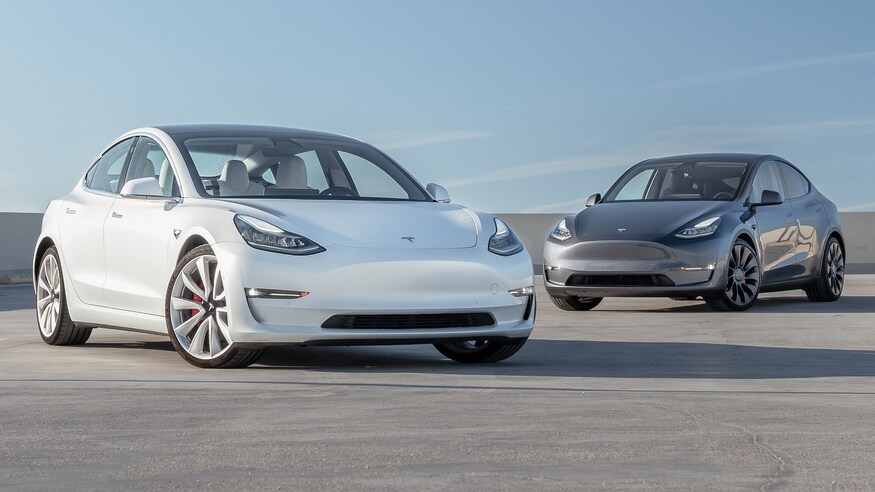For months, it has been rumored that Tesla is preparing a new 100 kWh capacity battery for the Model 3 and Model Y, its two most economical models. This pack should allow them to reach a range of about 434 miles under the realistic American EPA approval cycle, making them virtually the longest-range electric cars on the market.
These rumors have their origin in the @greentheonly hacker, who at the time found a code in which a hypothetical 100 kWh pack for Model 3 appeared. Now, another hacker specialized in Tesla software, @zeus7f1, has found new evidence of the existence of these batteries when accessing the Factory Mode of a Model 3.
hey @greentheonly look what we found here 🙂 pic.twitter.com/mQ9SIPoXDq
— Zeus M3 (@zeus7f1) June 15, 2020
After this, @greentheonly has gone a step further, claiming that Tesla currently has multiple test units rolling with such batteries. However, in the face of these rumors, Elon Musk, CEO of Tesla, has been quick to clarify on Twitter that the firm is currently not developing any larger pack for the Model 3 and Model Y.
Despite everything, this statement has not calmed the spirits, because if something has revealed the leaks, there are currently Model 3 test units equipped with fully functional 100 kWh capacity batteries. So why does Musk claim that this pack is not now in development?
The mules with the 100 kWh batteries may have the new self-made Roadrunner cells being developed by Tesla, which will initially have a higher energy density, an extended lifespan (up to 1.6 million kilometers), and a reduced cost compared to current chemicals.
The chances are that these new cells arrive sooner at Model S, Model X, Cybertruck and Semi than at Model 3 and Model Y; However, Elon Musk has a long history of statements denying the arrival of specific improvements to the Tesla range so as not to harm sales of current models.
The most obvious example is found in the arrival of an adaptive air suspension for the Model 3 and Model Y. Until now, test mules have been seen equipped with this element. Several exploits have shown that both models have been designed to accommodate this type of suspensions, and even some of the parts that will make up the pneumatic damping system have been leaked. Regardless, Musk continues to deny its development, possibly to prevent customers from deciding to wait for the improvement to arrive before making their purchase.
Something similar could be happening with the 100 kWh batteries of the Model 3 and Model Y. Musk has said that “a bigger pack is not in development,” something that many have interpreted as already finished. Will the Model 3 and Model Y ever have these batteries? Probably yes, but not in the short term.

